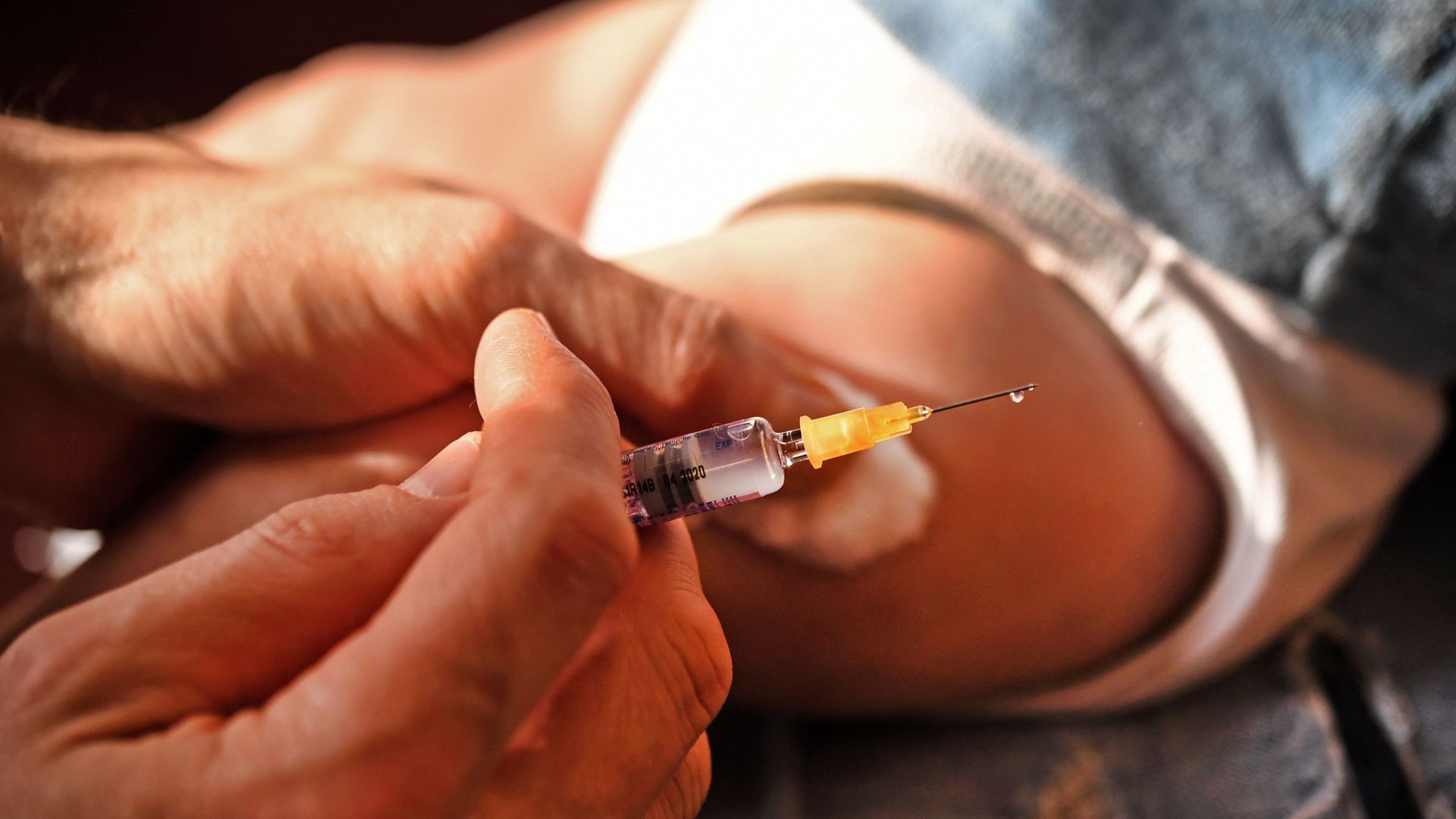Global disease risk worsening as anti-vaccination campaigns spread
Add Axios as your preferred source to
see more of our stories on Google.

A doctor prepares to administer a vaccine to an infant. Photo: Fred Tanneau/AFP via Getty Images
Vaccine coverage continued to decline in parts of the developed world last year, resulting in 60,000 measles cases in Europe — the most this century — and a record number of pediatric flu deaths in the U.S. In several Western U.S. counties, up to 30% of children have not received their full vaccine schedule — a trend that's been worsening since 2009.
The big picture: This drop-off in vaccinations owes primarily to parental exemptions for non-medical reasons, typically because of false beliefs that vaccines cause autism or illness. There are signs the anti-vaccine movement's misinformation campaigns will strengthen in 2019, leading to further declines in vaccine coverage and possibly more outbreaks of infectious disease.
- Released in 2016, the propagandist film "Vaxxed" accused the CDC of covering up evidence that vaccines cause autism and propelled the anti-vaccine movement. A sequel is slated for 2019.
- Political action committees in the U.S., Italy and elsewhere are ramping up populist rhetoric about parental freedoms to enact legislation making it easier to obtain vaccine exemptions.
- Launched in the fall of 2018, Children’s Health Defense has emerged as an influential new anti-vaccine organization. It focuses on American children, but its reach could extend abroad.
- Social media continues to amplify misinformation from hundreds of anti-vaccine websites.
Where it stands: The response to the anti-vaccine lobby by U.S. and European government agencies has been modest, leaving much of the defense of vaccines to academics. This situation will have to change if outbreaks of vaccine-preventable diseases continue or increase.
What to watch: The anti-vaccine movement could also move beyond its stronghold areas into Africa, Asia and Latin America. 2018 already saw anti-vaccine activities adversely affect child health vaccination programs in India, Indonesia and Thailand.
Peter Hotez is a professor of pediatrics and dean at Baylor College of Medicine and the author of “Vaccines Did Not Cause Rachel’s Autism.”
